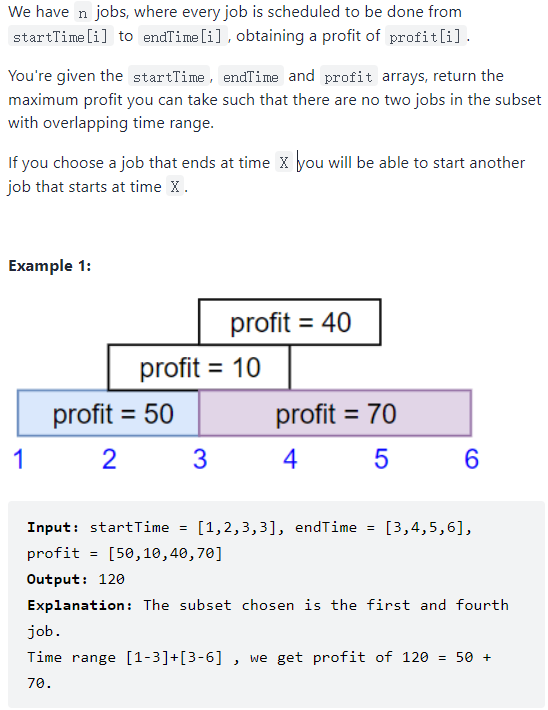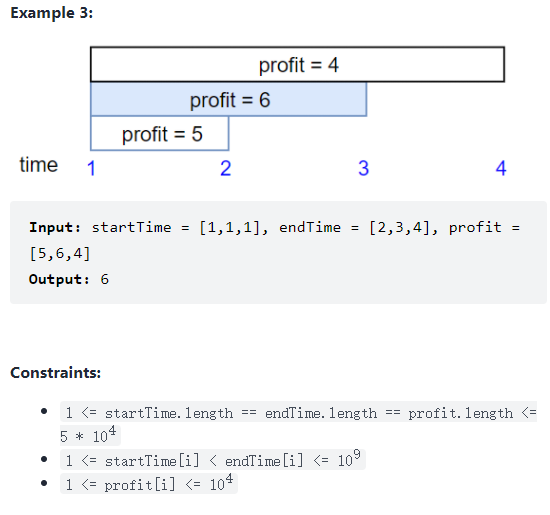1235. Maximum Profit in Job Scheduling
Description
Solution
Time interval question.
An simple intuition should be, if we find a best solution for a previous time, then we could use this information to calculate the later one with startTime[i] > endTime[i-1].
So we could use binary search to find the endTime suitable for current startTime.
To use bs, we need sort by endTime.
Code
1 2 3 4 5 6 7 8 9 10 11 12 13 14 15 16 17 18 19 20 21 22 23 24 25 26 27 28 29 30 31 32 class Solution {public : int jobScheduling (vector<int >& startTime, vector<int >& endTime, vector<int >& profit) int n = startTime.size (); vector<vector<int >> jobs (n); for (int i = 0 ; i < n; i++) jobs[i] = {startTime[i], endTime[i], profit[i]}; sort (jobs.begin (), jobs.end (), [](vector<int > &a, vector<int > &b){ if (a[1 ] == b[1 ]) return a[0 ] < b[0 ]; return a[1 ] < b[1 ]; }); vector<int > dp (n) ; vector<int > before; int res = 0 ; dp[0 ] = jobs[0 ][2 ]; before.push_back (jobs[0 ][1 ]); for (int i = 1 ; i < n; i++){ dp[i] = dp[i-1 ]; auto iter = upper_bound (before.begin (), before.end (), jobs[i][0 ]); if (iter != before.begin () && *prev (iter) <= jobs[i][0 ]){ dp[i] = max (dp[i], dp[prev (iter) - before.begin ()] + jobs[i][2 ]); }else { dp[i] = max (dp[i], jobs[i][2 ]); } before.push_back (jobs[i][1 ]); res = max (res, dp[i]); } return res; } };



